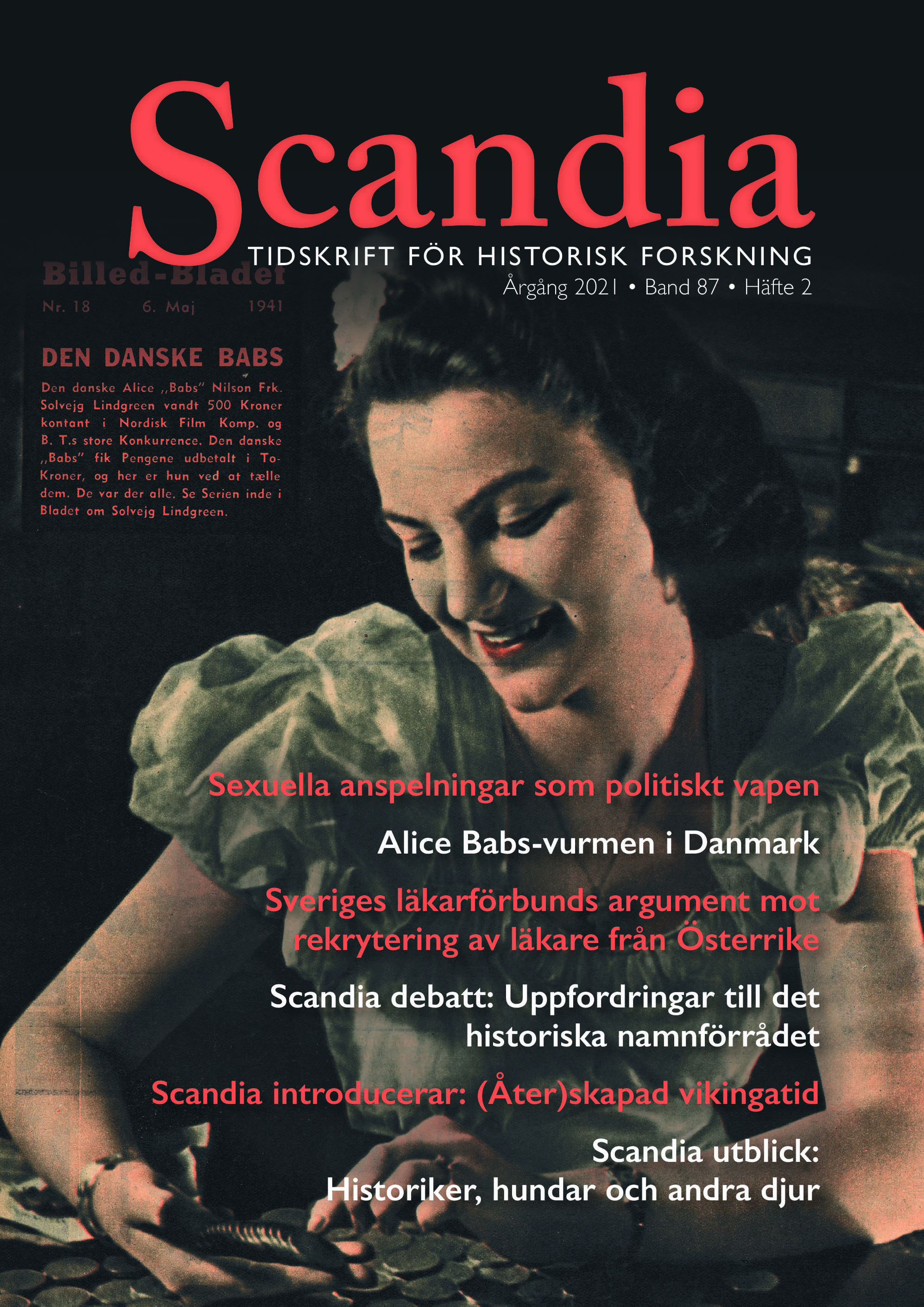Scandia debatt: 'Nomen est omen': Historical Onomasticon Contested in Light of Ethical Challenges
DOI:
https://doi.org/10.47868/scandia.v87i2.23700Keywords:
Anglo-Saxon, race, terminology, ethnogenesis, use of the past, identityAbstract
Over the past decades, a critically re-examined term in historical research has been the (supposed) ethnonym “Anglo-Saxon”. In the autumn of 2019, this discussion took a radical turn as the then International Society of Anglo-Saxonists (ISAS) voted to adopt an alternative name in response to Dr. Mary Rambaran-Olm’s resignation as the second vice president from ISAS as a protest against the Society’s implicit unwillingness to consider rebranding. This, coupled with the public reaction, caused a split among English-speaking medievalists into pro- and anti-“Anglo-Saxonists”. The former insist on the term’s methodological and terminological value in a “responsible use”, while the latter highlight its inherent anachronism and appropriation in racial discourse, thereby harming the demographics of the historical community. What has so far not been called into question is the focus on “Anglo-Saxon” as a potentially compromised word against a broader background. The aim of this debate article is to fill in this gap and to showcase the importance of this debate as indicative of greater social processes and methodological challenges facing historians, as well as to highlight its relevance for more than just English-speaking nations.





